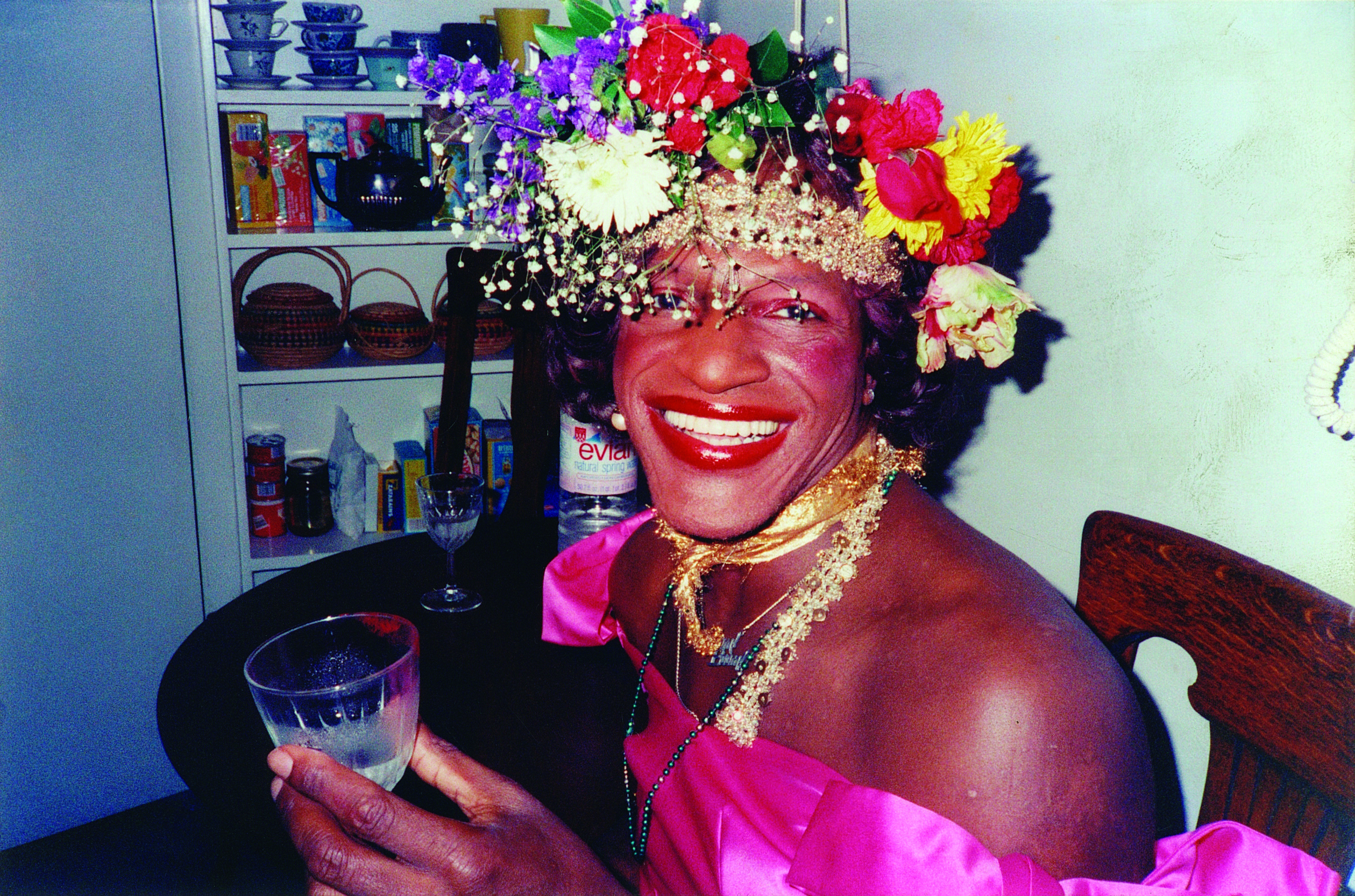The question of where Pride came from, what it means, and what its legacy should be has never been more pressing. And through the centre of Pride’s origins in the 1969 Stonewall riots walks the elusive figure of Marsha P Johnson, the model, performer, sex worker, activist, “Saint of Christopher Street” and self-described drag queen credited as the vanguard of the New York protests.
Johnson was a founding member of the Gay Liberation Front and the radical Street Transvestite Action Revolutionaries, and paid for a boarding house for gay and trans street kids using the money she earned from sex work. Her unexplained death in 1992 — originally ruled a suicide by the New York police — sent shocks through the community and protesters onto the streets demanding justice.
David France’s documentary The Death and Life of Marsha P Johnson picks up 25 years later, in a New York still plagued by violence against trans people and in which no culprit or explanation for Johnson’s death has been found. Veteran transgender activist Victoria Cruz sets out on a mission to reopen the case and discover what really happened in the days before Johnson’s body was found floating in the Hudson River.
“If we can’t bring justice for Marsha, how can we bring justice for all these other unsolved cases?” Cruz ponders.
Quietly and implacably, Cruz tracks down the evidence, from coroner’s reports to film footage to phone-call records, pinning theory after theory on hand-written cards onto a corkboard — a dirty cop? The mob? An accident? Suicide?
The unfolding mystery of Johnson’s death is grippingly suspenseful, and elevates The Death and Life above the plodding pace of many historical documentaries. But beneath that mystery is another: Who was Marsha P Johnson? What did she stand for?
Trailer from David France’s new documentary on Marsha P Johnson. Credit: Courtesy Vancouver Queer Film Festival
Johnson’s presence on screen, in historical footage from the 1970s until days before her death, is both saintly and enigmatic.
When a reporter asks her how attending a protest might affect her job, Johnson replies with a glint in her eye, “Darling, I don’t have a job, I’m on welfare. I have no intention of getting a job as long as this country discriminates against homosexuals.”
“The strategy she adopted was very interesting. It was to model the kind of freedom that the Gay Liberation Front and the Gay Activist Alliance and Lesbian Feminist Liberation were arguing for, and trying to imagine. And there was Marsha acting it out,” says director David France , who was a journalist at the Village Voice when Johnson died (and later directed How to Survive a Plague). “It’s hard to imagine the power of that role today. She led the way by example. That’s what gave her her power. It was a political power, even though it was expressed as joyous and embracing.”
If Johnson was the enigmatic, transcendent, Christ-like mystic, her passionate, vocal, confrontational shadow was Sylvia Rivera, a co-founder of the early transgender movement. Three transfixing minutes of footage from The Death and Life, in which Rivera is shouted off stage by an angry crowd at a gay liberation march in 1973 after being rejected as too much of a “stereotype” to represent the gay movement, should be required viewing for anyone commenting on the legacy of Pride.
Cruz, the film’s investigator, also carries forward Rivera’s legacy, and her frustration at being left behind by the respectability politics of the gay movement.
“Everyone was out for gay marriage,” an activist tells Cruz outside a New York courthouse where a man is being tried for murdering a trans woman. “We marched these streets, we got arrested over here, we were handcuffed there. But the privileged people got their gay marriage, and now they’re gone. And they’ve left the transgender community behind.”
Above all, though, The Death and Life of Martha P Johnson makes the argument that history matters. The legacy and activism of the founding mothers of the gay movement, and how we remember them, inform how we think about LGBT rights today.
“Can you imagine a founding figure from any other community who died mysteriously being allowed to exist in that mystery for all time?” France says. “And when that happens again and again and again, we begin to take that as the tradition of what we have to deal with. I think there’s something that we as a community owe to the founders of our movement. And for Marsha, that means bringing her death to some sort of conclusion.”


 Why you can trust Xtra
Why you can trust Xtra


